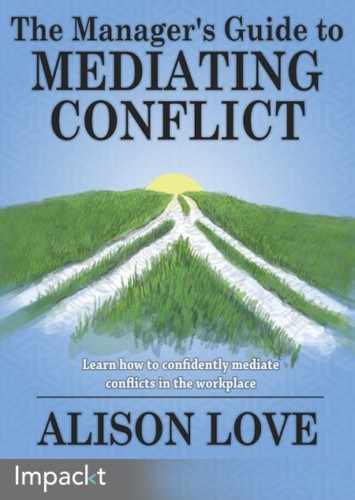In the context of mediation, being neutral can be summed up as:
- Not being affiliated with either side
- Maintaining the process in a way that is mutually acceptable to both sides
- Having no personal interest in the outcome
- Approaching the proceedings with an open mind
- Putting aside your own prejudices and values
Maintaining neutrality is important for a number of reasons, including building the trust, confidence, and respect of the parties and demonstrating fairness.
In practice, it can be very difficult to maintain neutrality, particularly where you may be acting as a mediator within your own organization and with people that you know or have some prior knowledge of. In these situations, it is far more difficult to put aside your own prejudices or views of people and not to have some preference in terms of the outcome. Also, demonstrating neutrality and independence can often be very much about perception.
The following hints and tips may help you to achieve neutrality and improve the chances of this being perceived to be the case:
- Maintain your distance: Wherever possible, do not mediate for parties that work directly for you or with whom you work closely. It is much better to ask another unconnected person to mediate and for you to mediate other disputes in different areas of the business. If this really is not viable, then explain fully to both parties the nature of your working relationships and ensure that both parties are happy with you taking on this role in the circumstances.
- Treat both sides equally: Pay attention to the time spent with each party. For example, if you do spend time speaking separately with each party, try not to keep another party waiting for a longer time than you spent with the other. In practice, this can sometimes be difficult as one person may feel the need to talk for longer and in detail and another will be very brief. If this does happen, then explaining why the other party needs more time may help.
- Don't impose solutions: If at any time you are offering solutions, put a number of options forward for discussion and consideration. If you propose only one solution, this may be seen as trying to move things in one particular direction.
- Remain neutral: Ensure that you are free of bias and set aside your opinions, feelings, and agendas. As explained in Chapter 1, Conflict in the Workplace, a good technique is to think of yourself as looking down on proceedings from a balcony.
- Ensure equal participation: Give equal consideration to each side by ensuring that you give each person an equal opportunity to talk about their positions and concerns fully. You will need to control the process if one person is dominating proceedings and doing all the talking. This might involve you intervening to ensure that the other party gets a full opportunity to be heard without interruption. You also need to be careful to challenge the parties equally; if you are continually questioning one and not the other, then this may appear (and will certainly appear to be) unfair and biased.
- Suspend your judgment: Don't assume that you know the answers and can spot the solution straightaway. It is a very easy trap to fall into but you will invariably be wrong as something will come up or be said that you were not expecting. Suspend your views and simply let the process flow.
Neutrality and independence are important principles; they protect you from becoming too involved and ensures parties are treated fairly and equally. It can be difficult at times but again these are skills that improve with practice and experience; if you are mediating regularly, you will quite quickly have heard most things!
